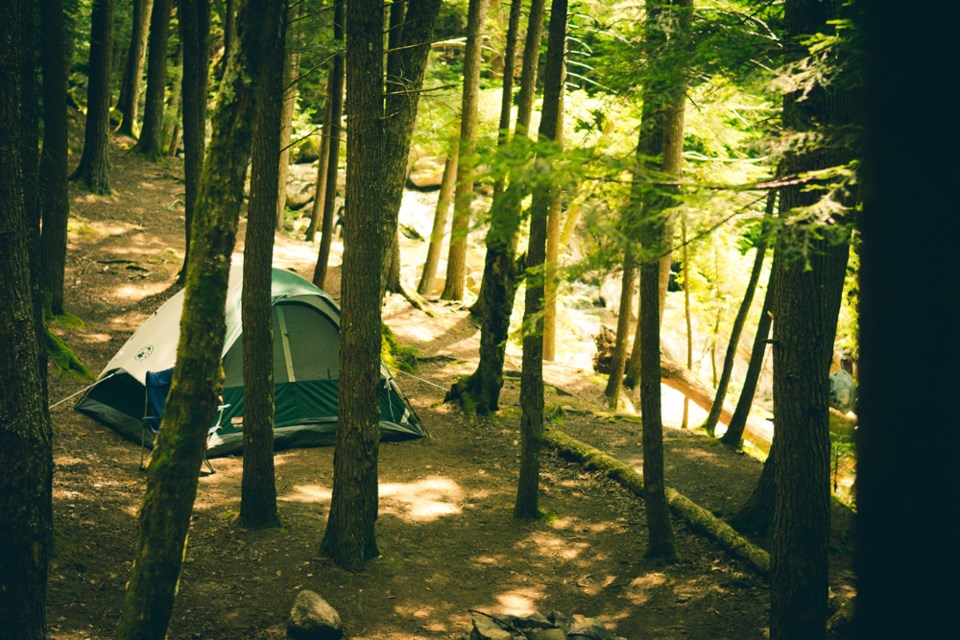The District of Squamish and the Squamish Access Society are working together on new plans to manage unsanctioned camping and van-living in sensitive areas around town.
On May 17, the Access Society released an open letter to the District, requesting action to help maintain the peace between those arriving in town during the summer to climb and concerned groups.
While not all are climbers, the society wrote that many people arrive in Squamish to spend the summer and “many come with expectations of camping (or living in their vans).”
As campsites with facilities have closed or gone out of business, unsanctioned free tent camping on Crown land and District land have increased.
“In some cases their choices are poor and so, appropriately, lead to criticism from local residents and environmental groups,” reads the letter.
As a solution, the directors of the Access Society have asked bylaw to provide more proactive enforcement. The letter suggests bylaw officers should identify troubled sites early and move illegal campers along in May or June.
On Tuesday at council, Natasha Golbeck, senior director of community services, said District staff met with the Access Society last week to discuss solutions, including identifying areas with “sensitive” neighbours – be they permanent residents in Squamish or wildlife.
“The call was really for the District to take a strong leadership role,” said Golbeck. “Our approach is really one going to be co-ordinated with our partners.”
She said due to the different areas and concerns, the District will need to involve BC Parks, the Squamish Nation, conservation officers, the Ministry of Forests, campground operators and the Access Society.
Part of the plan is to team up with the Society to create an awareness campaign with a “values-based” message, she said.
“It’s a departure from previous approaches,” said Golbeck. “It’s going to appeal to camper’s values about leaving no trace. Previously it wasn’t ‘no trace’ it was ‘no camping.’”
Golbeck said the estimates for “wild camping” are around one in 2,000 people per season.
“It’s trending upwards, it’s not something that is going away. So we want to remind people to be ecologically sensitive,” she said.
The Access Society also suggested providing temporary low-amenity campgrounds at peak periods. Suitable areas would be flat land with portable toilets such as the Logger Sports grounds or Crown land.
Golbeck said a piece of land up the Mamquam Forest Service Road is currently being considered for that purpose.
“We’re not convinced that the complicated logistics are going to be worth it,” she said. “It’s very far away on a very bumpy road, so not a lot of vehicles are going to be able to reach it.”



